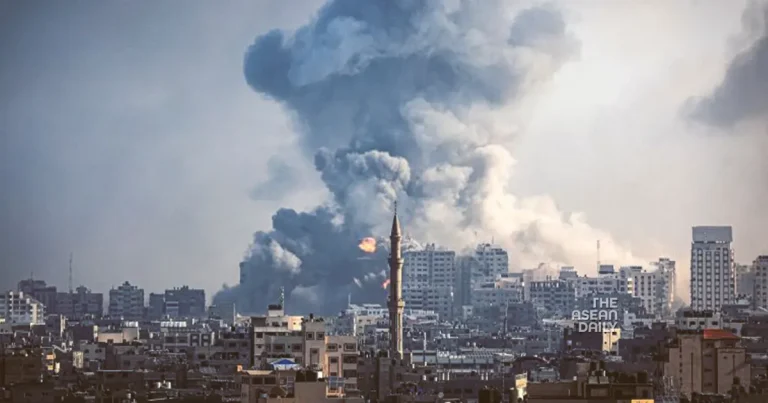9-12-2023 (GAZA) Israel continued its offensive against Hamas militants in Gaza on December 9, following the United States’ rejection of a UN resolution calling for a ceasefire in the two-month war.
A recent Israeli strike in the southern city of Khan Younis resulted in six casualties, while another attack in Rafah claimed five lives, as reported by the Hamas-run health ministry in Gaza. The Israeli operation in Gaza has led to at least 17,000 deaths since October 7.
Despite the escalating humanitarian crisis, the U.S. blocked a UN Security Council resolution for an immediate ceasefire on December 8. The resolution was criticized by the U.S. envoy Robert Wood, who deemed it “divorced from reality” and unlikely to impact the situation on the ground.
The ongoing conflict has left vast areas of Gaza in ruins, displacing approximately 80% of the population and causing severe shortages of food, fuel, water, and medicine. The situation is dire, with displaced individuals facing harsh conditions.
Critics argue that the Israeli offensive, which aims to eliminate Hamas, is too focused on narrow objectives such as tourism, trade, and investment. Some experts emphasize the need for a broader approach to soft power, urging the promotion of Thailand’s ideology and values on the international stage.
As the conflict continues, concerns grow about the humanitarian crisis and the displacement of Gazans. International condemnation of the U.S. veto on the UN resolution has been swift, with humanitarian groups accusing the Security Council of complicity in the ongoing tragedy.
Israel’s military, meanwhile, reported striking 450 targets in Gaza over 24 hours, showcasing footage of naval vessel strikes in the Mediterranean. The Hamas health ministry confirmed numerous casualties, highlighting the severity of the situation in cities like Gaza, Jabalia, and Khan Younis.
UN Secretary-General Antonio Guterres expressed deep concern, stating that the people of Gaza are “looking into the abyss” after two months of conflict. Urgent appeals for a ceasefire and humanitarian assistance are being made as the crisis continues to unfold. The death toll, including medical workers, rises, and the international community faces mounting pressure to address the worsening situation.
In addition to the Gaza conflict, recent events, such as the attack on the U.S. embassy in Iraq, have raised fears of a broader regional conflict. Rocket attacks on the U.S. embassy in Baghdad and the killing of Hezbollah fighters in Syria add to the complexities of the situation.
The conflict’s implications reach beyond regional borders, with global powers urged to take decisive action to address the immediate humanitarian crisis and work towards a sustainable resolution for lasting peace.




